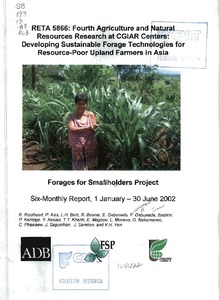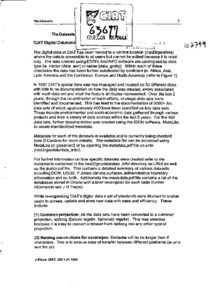Mission
To reduce hunger and poverty, and improve human nutrition in the tropics through research aimed at increasing the eco-efficiency of agriculture.
People
CIAT’s staff includes about 200 scientists. Supported by a wide array of donors, the Center collaborates with hundreds of partners to conduct high-quality research and translate the results into development impact. A Board of Trustees provides oversight of CIAT’s research and financial management.
Values
- Shared organizational ethic
- We respect each other, our partners, and the people who benefit from our work. We act with honesty, integrity, transparency, and environmental responsibility in all of our joint endeavors.
- Learning through partnerships
- We work efficiently and pragmatically together and with partners. Considering our diversity to be a key asset, we adapt readily to change and strive to improve our performance through continuous learning.
- Innovation for impact
- We develop innovative solutions to important challenges in tropical agriculture, resulting in major benefits for the people who support, participate in, and profit from our work.
Members:
Resources
Displaying 496 - 500 of 958RETA 5866: fourth agriculture and natural resources research at CGIAR centers: developing sustainable forage technologies for resource-poor upland farmers in Asia: Forages for Smallholders Project: Six-monthly report, 1 January-30 June 2002
Seeds of hope project
During the week beginning the 25th of October 1999 in Honduras and Nicaragua, Hurricane Mitch devastated large areas in the cities, razed bridges and highways, and left some regions isolated, blocking aid efforts. The production of basic grains that are obtained in the hillsides, where the poorest farrners live, suffered serious damage. Winds and floodwaters badly hit the productive areas where some farmers were harvesting their crops and others were planting. Great losses were caused, affecting the economy and production of food of these two countries.





